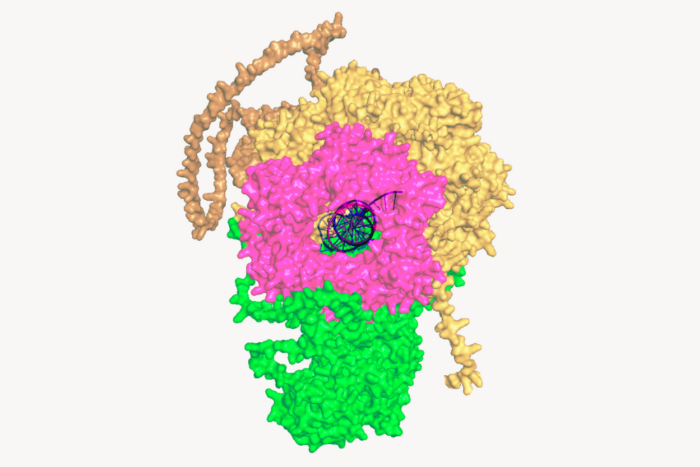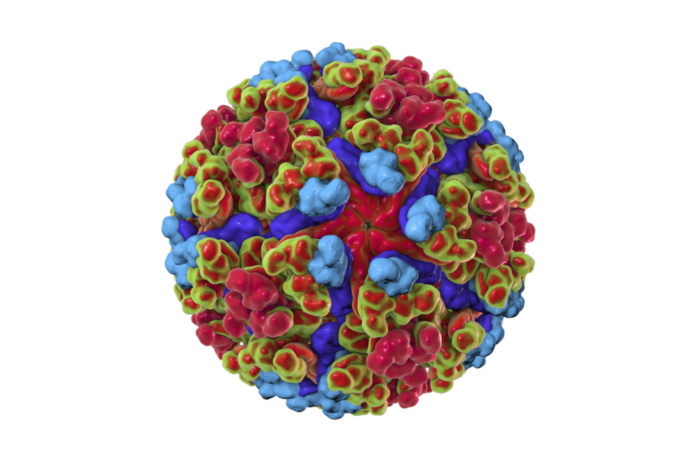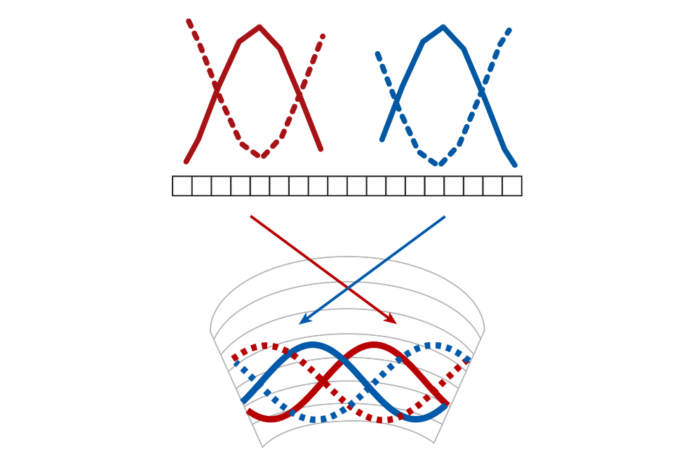Rockefeller University Honors Brooke Astor, Presents Honorary Degrees to Sydney Brenner and Viktor Hamburger and Awards 25 Doctorates at Graduation Ceremonies
The Rockefeller University will honor civic leader and philanthropist Brooke Astor and award honorary doctorate degrees to scientists Sydney Brenner, D.Phil., a pioneer of modern molecular genetics, and Viktor Hamburger, Ph.D., a founder of developmental neurobiology, at the institution’s 38th commencement exercises, Thursday, June 13, 1996.
At graduation 25 students from seven countries, including Armenia, Bulgaria, China, India, Singapore, Romania and the United States, will receive doctoral degrees. The students include six enrolled in the M.D.-Ph.D. program offered jointly by the university, Cornell University Medical College and Sloan-Kettering Institute.
“After finishing their graduate studies at The Rockefeller University, our students will pursue research careers worldwide. We look forward to their advancement and the achievements they will make,” says Torsten N. Wiesel, M.D., president of the university.
Holding with tradition, The Rockefeller University commencement has no speaker. Rather, faculty mentors introduce each student and describe his or her research after which they receive their hoods and President Wiesel presents their diplomas.
Astor
Astor is the second recipient of the David Rockefeller Award, which recognizes an individual from the university’s community whose extraordinary service exemplifies David Rockefeller’s commitment to the institution. The award acknowledges “unswerving enthusiasm for its scientists and a deep concern for the progress of their research; selfless dedication to further the university’s mission and strengthening the institution; and an unstinting effort to enlist others to join in supporting biomedical science for the benefit of humankind.” The first award was presented to David Rockefeller himself in June 1995, in recognition of his 55 years of distinguished service on the university’s board of trustees.
The award is named for David Rockefeller, the 81-year-old grandson of the university’s founder, John D. Rockefeller Sr., who has served the school since 1940. He became chairman of the board of trustees in 1950, succeeding his father, John D. Rockefeller Jr., and served until 1975, a period during which he shepherded the institute’s transformation into a university. From 1975 to 1995, he chaired the board’s executive committee and with his retirement in June 1995, the board named him a life trustee and honorary chairman.
Astor is president of the Vincent Astor Foundation, which was founded by her late husband, Vincent Astor, who died in 1959. Since its establishment in 1948, the Foundation has given away more than $165 million in some 2,400 grants to New York institutions and programs including the New York Zoological Society, the New York Botanical Garden, the Pierpont Morgan Library, the South Street Seaport and the New York Public Library, for which she serves as honorary chairman. The Metropolitan Museum of Art also has benefited from her generosity.
Astor joined the Rockefeller University board of trustees in 1972 and she was elected the institution’s first life trustee in 1983. In 1974, Astor established two Vincent Astor Professorships at the university, which are held by Paul Greengard, head of the Laboratory of Molecular and Cellular Neuroscience, and James E. Darnell Jr., head of the Laboratory of Molecular Cell Biology. In 1980, she established the Vincent and Brooke Astor Professorship, held by Wiesel.
Brenner
Brenner worked at the M.R.C. Laboratory of Molecular Biology in Cambridge, U.K., which he directed from 1979 to 1986. He is an honorary professor of genetic medicine at the University of Cambridge and a fellow of King’s College, Cambridge. His research revealed the general nature of the genetic code and the identity of messenger RNA, the molecules that transfer genetic information from the DNA sequences of genes for the synthesis of proteins. Later he initiated an entire new area of developmental genetics centered on the nematode, C. elegans.
He received his master of science degree in 1947 and medical degress (M.B.,B.Ch.) in 1951, both from the University of Witwatersrand in Johannesburg, South Africa and a doctorate of philosophy in 1954 from Oxford University. His honors include the Albert Lasker Medical Research Award, the Royal Medal and Copley medal of the Royal Society, the Kyoto Prize and the King Faisal International Prize for Science.
Hamburger
Hamburger is the E. Mallinckrodt Distinguished Professor Emeritus at Washington University in St. Louis, Mo. A key contributor in the field of experimental embryology, he pioneered studies on the growth and development of the nervous system. A native of Germany, he received his doctorate degree in 1925 from the University of Freiburg. From 1941 to 1968, he served as chairman and professor of zoology at Washington University, joining the emeriti faculty in 1968.
Among his awards are the Horwitz Prize, the U.S. National Medal of Science and the Karl Lashley Award. He is a member of the National Academy of Sciences (U.S.A.), the Society of Developmental Biology and the International Society of Developmental Biology.
Students
The 1996 graduating students and their thesis topics follow. Students marked with * also will receive a medical degree from Cornell University:
Miriam Berman, B.A.
Platelet Endothelial Cell Adhesion Molecule-1(PECAM-1): Adhesive Properties and Roles in Leukocyte Migration and Integrin Activation
Claudio Bertuccioli, B.A., M.S.
In vivo Structure-Function Analysis of the Paired Segmentation Gene: A Paradigm for Pax Gene Function
*Sandy Chang, B.S.
MacMARCKS and the Protein Kinase C Signal Transduction Pathway: Role in Neural Secretion and Development
Sek-Jin Chew, M.B.B.S., M.S.
An Ethological Framework for Understanding Long-term Memory
*Wendy Chung, B.A.
Molecular Genetic Analysis of Rodent Models of Non-insulin-dependent Diabetes Mellitus
Firdaus Dhabhar, A.B.
Stress-Induced Enhancement of Antigen-Specific Cell-Mediated Immunity: The Role of Hormones and Leukocyte Trafficking
*Athanasios Dousmanis, B.Sc., M.Sc.
The Cystic Fibrosis Transmembrane conductance Regulator (CFTR) Channel: Gating by ATP Hydrolysis and Anion Selectivity
Brian Guenther, B.S.
Structural Studies of the DNA Replication Apparatus: X-ray Crystal Structure of the ![]() ´ Subunit ofEscherichia coli DNA Polymerase III
´ Subunit ofEscherichia coli DNA Polymerase III
Carole Landisman, B.S.E.E.
The Organization of Color Processing in Macaque Striate Cortex
Xiao-Lin Liu, M.D., M.A., M.S.
Cloning, Characterization and Functional Studies of Mouse Notch 2 in the Development of Cerebellar Granule Neurons
Arthur Maghakian, M.S.
Direct Photon Cross Section Measurement in Proton-Antiproton Collisions at ![]() s = 1800 GeV
s = 1800 GeV
Christopher Marshall, Vor-Diplom
The Involvement of c-Abl in Crk and Neuropeptide Signaling
Robert McGrath, B.S.
Molecular Genetic Analysis of Cyclic GMP Signaling in Higher Plants
Christina McKittrick, B.S.
Physiological, Endocrine and Neurochemical Consequences of Chronic Social Stress
*Christopher Min, A.B.
Functional Reconstitution of Recombinant Heterotrimeric Transducin: Mechanism of Phosphodiesterase Activation
Junona Moroianu, M.S.
Molecular Mechanisms of Nuclear Protein Transport in Mammalian Cells
Dimitar Nikolov, M.Sc.
Structural Studies of TATA Box Binding Protein and Transcription Factor IIB
*Estela O’Brien, B.A., M.A.
The Functional Organization of the Mammalian Visual Cortex as Revealed by Optical Imaging of Intrinsic Signals
Jun Qin, B.S., M.S.
Trapping Gene Products: New Tools for Studying Proteins
Arthur Tinkelenberg, B.A.
A Genetic Analysis of G1 Cyclin Function in Budding Yeast Cell Cycle Start
*Edward Vates, B.S.
The Interface Between Auditory and Motor Circuits for Vocal Learning in Birds
David Wilson, Jr., A.B.
DNA Recognition and Cooperative Dimerization by the Homeodomain
Xiaodong Wu, B.A., M.S.
Structural Basis for the Recognition of Proline-rich Peptides by Crk SH3 Domain: A Crystallographic Analysis
Lori Zeltser, A.B.
Hoxb-13: Colinear Expression of a New Hox Gene in a Distant Region of the HOXB Cluster
Chen Zheng, M.A.
Astrotactin: A Novel CNS Gene That Functions in Glial-guided Neuronal Migration


